2003-04-03 10:42
Shipping lines suffer from skyrocketing oil prices
While the likelihood of war between the US and Iraq escalates, international oil prices have followed right along, causing further difficulties for shipping companies in terms of operational costs.
Worries over a war in Iraq and the decline of US oil reserves caused West Texas oil prices to hit $37.66 as of February 26, an increase of $1.69 over the previous day. It was the highest price on record since 1990. The bunker price for vessels varied by country, ranging from $180 to $210.
International oil prices, in spite of no real war yet, closed at $40 per barrel, similar to prices just after the outbreak of the Gulf War in 1990.
The Korea Shipowner's Association noted that international oil prices have doubled, citing how West Texas Intermediate (WTI) oil doubled from $19 to $38 per barrel from January 2002 to February 26, 2003.
Following the trend, vessel oil prices also hit between $190 -and $210 per ton as of Feb. 26, up from between $102 and $117 in January 2002. Especially, Busan had sharp increases to $209.50 per ton on Feb. 26, up from $117 in January 2002. So did Singapore, up from $112 to $198 during the same 13 month period.
This oil price hike is predicted to cost Korean shipping lines more than $500 dollars extra annually, burdening the country as a whole for $1.5 billion in oil costs annually. Korea uses 7.7 million tons of oil worth over $1 billion per year. Oil costs account for 15% of vessel operating costs.
World Global Alliance announced it would raise the BAF (Banker Adjustment Factor) to cover vessel operating costs due to oil price hikes. However, the association still estimates the BAF hikes would not be enough to cover the increase of operating costs.
The TSA (Transpacific Stabilization Agreement) filed with the Federal Maritime Council (FMC) to raise the BAF for 20ft containers to $172.50 from $135.75 by April 1 and $230 for 40 ft containers from $185.
The FEFC (Far Eastern Freight Conference) also tried to increase the BAF from $70 per TEU to $97 and, from $140 per FEU to $194 as of March 1.
ANZEC also planned to raise its BAF from $125 to $150 per TEU and $250 per FEU from $200.
In other trades, Korea - Japan trade introduced a $104 BAF up from $84 per TEU starting from mid-March. General cargoes will also see the price increase. Korea-China-Japan trade, which hasn't imposed a BAF, introduced an Emergency Bunker Surcharge (EBS), charging $20 per TEU and $40 per FEU from March 1.
Along with continuous high oil costs, maritime experts pointed out that the GRI will advance from each scheduled trade in April or May.
Worries over a war in Iraq and the decline of US oil reserves caused West Texas oil prices to hit $37.66 as of February 26, an increase of $1.69 over the previous day. It was the highest price on record since 1990. The bunker price for vessels varied by country, ranging from $180 to $210.
International oil prices, in spite of no real war yet, closed at $40 per barrel, similar to prices just after the outbreak of the Gulf War in 1990.
The Korea Shipowner's Association noted that international oil prices have doubled, citing how West Texas Intermediate (WTI) oil doubled from $19 to $38 per barrel from January 2002 to February 26, 2003.
Following the trend, vessel oil prices also hit between $190 -and $210 per ton as of Feb. 26, up from between $102 and $117 in January 2002. Especially, Busan had sharp increases to $209.50 per ton on Feb. 26, up from $117 in January 2002. So did Singapore, up from $112 to $198 during the same 13 month period.
This oil price hike is predicted to cost Korean shipping lines more than $500 dollars extra annually, burdening the country as a whole for $1.5 billion in oil costs annually. Korea uses 7.7 million tons of oil worth over $1 billion per year. Oil costs account for 15% of vessel operating costs.
World Global Alliance announced it would raise the BAF (Banker Adjustment Factor) to cover vessel operating costs due to oil price hikes. However, the association still estimates the BAF hikes would not be enough to cover the increase of operating costs.
The TSA (Transpacific Stabilization Agreement) filed with the Federal Maritime Council (FMC) to raise the BAF for 20ft containers to $172.50 from $135.75 by April 1 and $230 for 40 ft containers from $185.
The FEFC (Far Eastern Freight Conference) also tried to increase the BAF from $70 per TEU to $97 and, from $140 per FEU to $194 as of March 1.
ANZEC also planned to raise its BAF from $125 to $150 per TEU and $250 per FEU from $200.
In other trades, Korea - Japan trade introduced a $104 BAF up from $84 per TEU starting from mid-March. General cargoes will also see the price increase. Korea-China-Japan trade, which hasn't imposed a BAF, introduced an Emergency Bunker Surcharge (EBS), charging $20 per TEU and $40 per FEU from March 1.
Along with continuous high oil costs, maritime experts pointed out that the GRI will advance from each scheduled trade in April or May.
많이 본 기사
- 국제물류업계, 광양항 마지막 배후단지 활용법 모색한다‘일상이 된 물류시장 불확실성’, AI·친환경이 돌파구‘고환율·저운임’ 글로벌 물류기업 일제히 부진한 실적 신고‘수요 둔화 지속’ 컨운임지수 한주만에 1300선으로 후퇴DHL, 중동 두바이에 차세대 물류허브 개소해운협회, 부산항도선사회와 CCTV 활용 안전도선 업무협약한국해양대, 장금상선등 해운사와 해양인재 양성방안 모색2028년 유엔 해양총회 한국 유치 확정KMI, 우리나라와 북극권국가 협력 방안 모색벌크선시장, 급등 이후 조정 '속도 조절 들어가나'
- 인사/ 팬오션전재수 해수부 장관 사의…“해양수도권 차질없이 육성되길”쿠팡 박대준 대표이사 사임…“개인정보 유출 책임 통감”에스티엘글로벌, 한국해大 해사대학에 장학금 기부日 ONE 운항 9100TEU급 컨선 화재…공동해손 선언인사/ 해양수산부윌로그, 벤처창업진흥유공 대통령 표창 수상아시아나IDT, 산업안전세미나 개최…‘플랜투두’ 확산 전략 공유아로아랩스, 중기부 창업지원프로그램 선정…연구개발 자금 확보부음/ 해운조합 최종진 본부장 빙모상





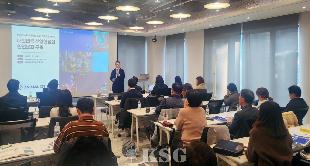



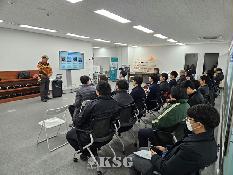


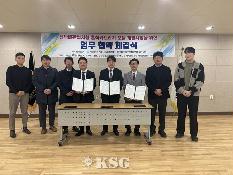


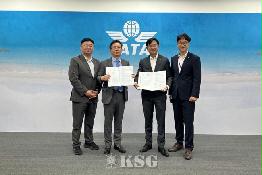

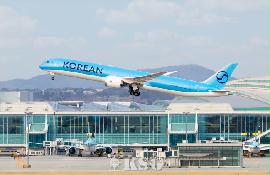


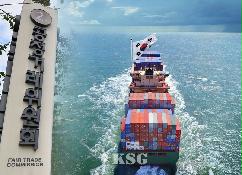
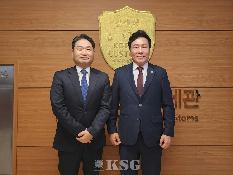

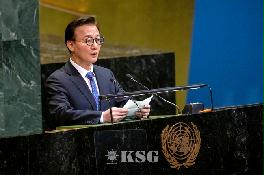
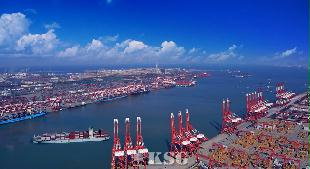
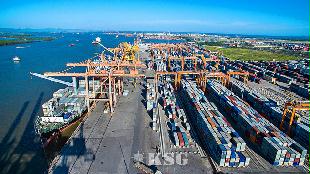
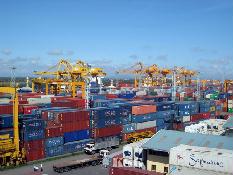






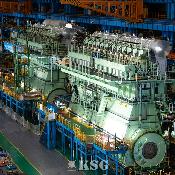
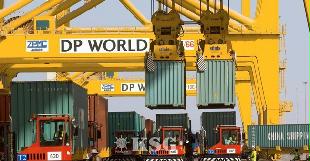

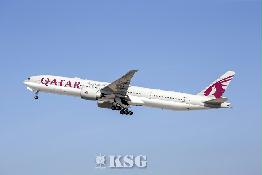





















0/250
확인